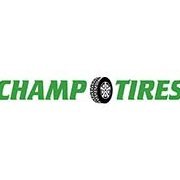The role of oil changes in your business plan?
-
Available Subscriptions
-
Have you checked out Joe's Latest Blog?
-
By Joe Marconi in Joe's Blog0 commentsIt always amazes me when I hear about a technician who quits one repair shop to go work at another shop for less money. I know you have heard of this too, and you’ve probably asked yourself, “Can this be true? And Why?” The answer rests within the culture of the company. More specifically, the boss, manager, or a toxic work environment literally pushed the technician out the door.
While money and benefits tend to attract people to a company, it won’t keep them there. When a technician begins to look over the fence for greener grass, that is usually a sign that something is wrong within the workplace. It also means that his or her heart is probably already gone. If the issue is not resolved, no amount of money will keep that technician for the long term. The heart is always the first to leave. The last thing that leaves is the technician’s toolbox.
Shop owners: Focus more on employee retention than acquisition. This is not to say that you should not be constantly recruiting. You should. What it does means is that once you hire someone, your job isn’t over, that’s when it begins. Get to know your technicians. Build strong relationships. Have frequent one-on-ones. Engage in meaningful conversation. Find what truly motivates your technicians. You may be surprised that while money is a motivator, it’s usually not the prime motivator.
One last thing; the cost of technician turnover can be financially devastating. It also affects shop morale. Do all you can to create a workplace where technicians feel they are respected, recognized, and know that their work contributes to the overall success of the company. This will lead to improved morale and team spirit. Remember, when you see a technician’s toolbox rolling out of the bay on its way to another shop, the heart was most likely gone long before that.
-
-
Similar Topics
-
By champtires
Premium Member Content
This content is hidden to guests, one of the benefits of a paid membership. Please login or register to view this content.
-
By carmcapriotto
Thanks to our partners, NAPA TRACS and Promotive
Tariffs might sound like a foreign concept—until they hit home. In this episode of Business by the Numbers, Hunt breaks down the real-world impact tariffs can have on your auto repair shop, using a powerful shop-vs-shop analogy to explain rising costs, disappearing jobs, and economic ripple effects. Whether you're in the weeds of part pricing or just trying to make sense of the news, this episode gives you the context you need.
Here’s what you’ll learn in this episode:
Why tariffs are making headlines—and how they could impact part costs in your shop What the “free market” really looks like when safety and environmental regulations aren’t equal The economic chain reaction that can crush local businesses and communities How tariffs influence pricing, profits, and technician availability in the long term A breakdown of how the U.S. tax system evolved from tariffs to income taxes—and why that matters now
Thanks to our partner, NAPA TRACS
Did you know that NAPA TRACS has onsite training plus six days a week support?
It all starts when a local representative meets with you to learn about your business and how you run it. After all, it's your shop, so it's your choice.
Let us prove to you that Tracs is the single best shop management system in the business. Find NAPA TRACS on the Web at NAPATRACS.com
Thanks to our partner, Promotive
It’s time to hire a superstar for your business; what a grind you have in front of you. Introducing Promotive, a full-service staffing solution for your shop. Promotive has over 40 years of recruiting and automotive experience. If you need qualified technicians and service advisors and want to offload the heavy lifting, visit www.gopromotive.com.
Paar Melis and Associates – Accountants Specializing in Automotive Repair
Visit us Online: www.paarmelis.com
Email Hunt: [email protected]
Text Paar Melis @ 301-307-5413
Download a Copy of My Books Here:
Wrenches to Write-Offs Your Perfect Shop
The Aftermarket Radio Network: https://aftermarketradionetwork.com/
Remarkable Results Radio Podcast with Carm Capriotto https://remarkableresults.biz/
Diagnosing the Aftermarket A to Z with Matt Fanslow https://mattfanslow.captivate.fm/
Business by the Numbers with Hunt Demarest https://huntdemarest.captivate.fm/
The Auto Repair Marketing Podcast with Kim and Brian Walker https://autorepairmarketing.captivate.fm/
The Weekly Blitz with Chris Cotton https://chriscotton.captivate.fm/
Speak Up! Effective Communication with Craig O'Neill https://craigoneill.captivate.fm/
Click to go to the Podcast on Remarkable Results Radio
-
By Joe Marconi
Premium Member Content
This content is hidden to guests, one of the benefits of a paid membership. Please login or register to view this content.
-
By Joe Marconi
Premium Member Content
This content is hidden to guests, one of the benefits of a paid membership. Please login or register to view this content.
-
-
By carmcapriotto
Want to create marketing that actually excites your customers and keeps them coming back for more? In this episode, host Brian Walker and co-host Kim Walker sit down with Robert Morton from Panhandle Eurotech to uncover how a simple treasure hunt turned into a marketing powerhouse, boosting website traffic, improving SEO rankings, and creating a stronger connection with their community.
Robert shares how his shop designed a treasure hunt that got people actively searching for clues, engaging with their website, and following their business more closely than ever before. From increasing customer interaction to enhancing their shop’s online visibility, this strategy has proven to be a game-changer.
You'll hear wild stories from past treasure hunts, how people got hooked, and why this strategy keeps working time and time again. Plus, we dive into the impact of gamification, creative ways to engage your audience, and how to build a marketing strategy that actually works for your shop.
Don't miss this episode, tune in now and start thinking outside the box with your marketing! 🚀
Thank you to our friends at RepairPal for providing you this episode. RepairPal’s Certified
Network of shops are trusted by millions of customers each month. Learn more at
RepairPal.com/shops.
Are you ready to convert clients to members? App Fueled specializes in creating custom apps tailored specifically for professional auto repair businesses. Visit Appfueled.com to get started today. Keep your shop top of mind on the mobile device they love.
Lagniappe (Books, Links, Other Podcasts, etc)
Panhandle Eurotech
Show Notes with Timestamps
How To Get In Touch
Join The Auto Repair Marketing Mastermind Group on Facebook
Meet The Pros
Follow SMP on Facebook
Follow SMP on Instagram
Get The Ultimate Guide to Auto Repair Shop Marketing Book
Email Us Podcast Questions or Topics
The Aftermarket Radio Network: https://aftermarketradionetwork.com/
Remarkable Results Radio Podcast with Carm Capriotto: Advancing the Aftermarket by Facilitating Wisdom Through Story Telling and Open Discussion. https://remarkableresults.biz/
Diagnosing the Aftermarket A to Z with Matt Fanslow: From Diagnostics to Metallica and Mental Health, Matt Fanslow is Lifting the Hood on Life. https://mattfanslow.captivate.fm/
Business by the Numbers with Hunt Demarest: Understand the Numbers of Your Business with CPA Hunt Demarest. https://huntdemarest.captivate.fm/
The Auto Repair Marketing Podcast with Kim and Brian Walker: Marketing Experts Brian & Kim Walker Work with Shop Owners to Take it to the Next Level. https://autorepairmarketing.captivate.fm/
The Weekly Blitz with Chris Cotton: Weekly Inspiration with Business Coach Chris Cotton from AutoFix - Auto Shop Coaching. https://chriscotton.captivate.fm/
Speak Up! Effective Communication with Craig O'Neill: Develop Interpersonal and Professional Communication Skills when Speaking to Audiences of Any Size. https://craigoneill.captivate.fm/
Click to go to the Podcast on Remarkable Results Radio
-
-
-
Our Sponsors

















Recommended Posts
Create an account or sign in to comment
You need to be a member in order to leave a comment
Create an account
Sign up for a new account in our community. It's easy!
Register a new accountSign in
Already have an account? Sign in here.
Sign In Now